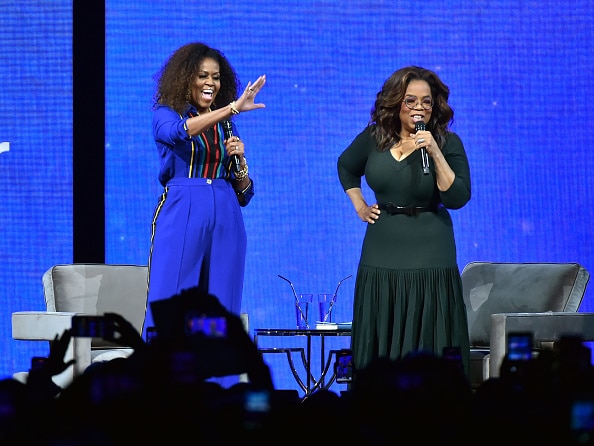Throughout history, there have been extraordinary people whose remarkable achievements have shaped the world we live in today. Yet, when we think of famous people in Black History, we often think of Dr. Martin Luther King or former President Barack Obama. Although often overlooked or underrepresented, Black women have also made indelible contributions that have transformed society, shattered barriers and paved the way for future generations.
In 1985, “The Color Purple” became the first film based on a Pulitzer Prize-winning novel by an African American woman and its success led to a 2023 remake. More recently, when the trailer of the first live action movie of “The Little Mermaid” was released, reaction videos of young Black girls mesmerized by the images of Halle Bailey as a Black Ariel were widely shared across social platforms. These successes are a testament for the need to share more stories that highlight the humanity, triumphs and courage of Black women, especially in the face of inequitable and often dangerous circumstances.
Black female trailblazers have combated adversity, racism and sexism to redefine the boundaries of success, leaving an enduring legacy that inspires and empowers girls and women. Here, 16 famous Black women in history who’ve led the way for future generations.
1. Sojourner Truth
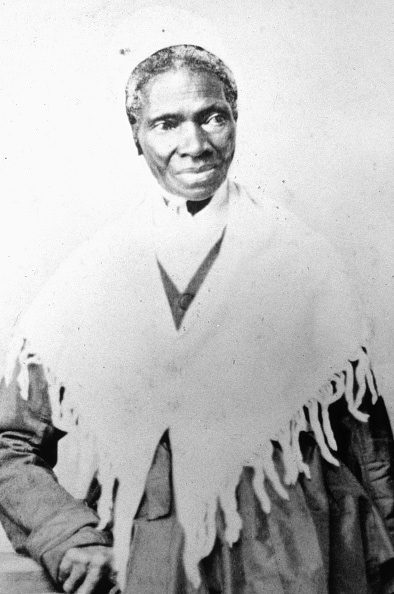
Sojourner Truth, born Isabella Bomfree in 1797, was an abolitionist, speaker and women’s rights activist. Truth was the leading voice for women’s voting rights and made considerable contributions to not only Black History but to women’s history. Truth was known to be steadfast in speaking for equal rights for all. In a speech at the unveiling of the Sojourner Truth bust in 2008, in the Nation’s capital, former First Lady Michelle Obama said, “We stand on the shoulders of giants like Sojourner Truth.”
2. Harriet Tubman
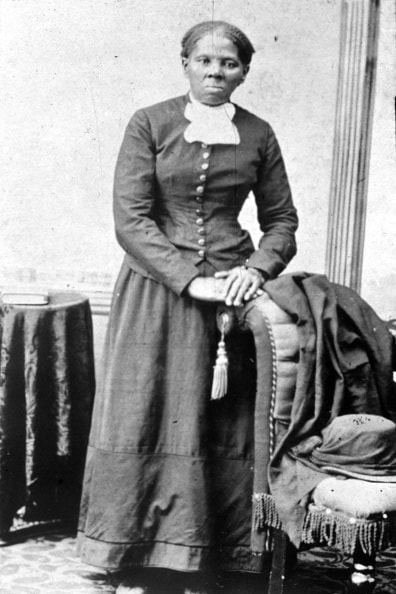
Harriet Tubman was the leader of the Underground Railroad. Born approximately around 1820, her legacy is indelible in the movement to abolish slavery in America. After she risked her life to escape slavery, she is documented to have made approximately 13 trips back to her home state of Maryland to lead 70 other slaves to freedom. At a convention in NY in 1896,Tubman said, “I was the conductor of the Underground Railroad for eight years, and I can say what most conductors can’t say — I never ran my train off the track and I never lost a passenger.”
3. Ida B. Wells Barnett
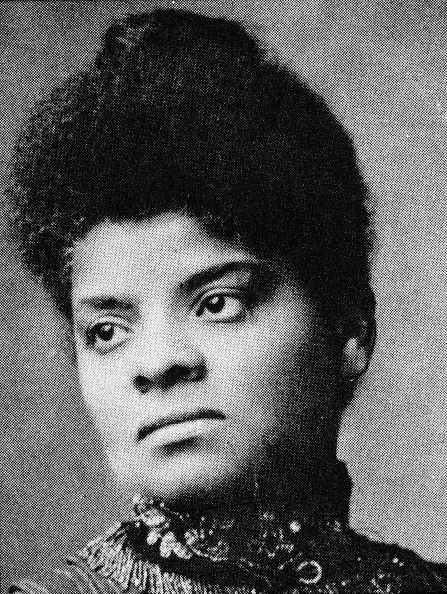
Born in 1862, Ida B. Wells-Barnett was a journalist, abolitionist and feminist. She was also a founder of the National Association of Colored Women’s Club and the National Afro-American Council. In a New York Times article about Wells’ contribution to the anti-lynching campaign, Crystal Feimster, associate professor of African-American studies and American studies at Yale, noted the attempts to intimidate Wells didn’t stop her. “Instead, she crossed the country lecturing on the evils of mob violence,” said Feimster. “She traveled to Britain, where she started an international crusade against lynching.”
“I want to be remembered as a catalyst for change in America.”
— Shirley Chisolm, politician and activist
4. Shirley Chisolm
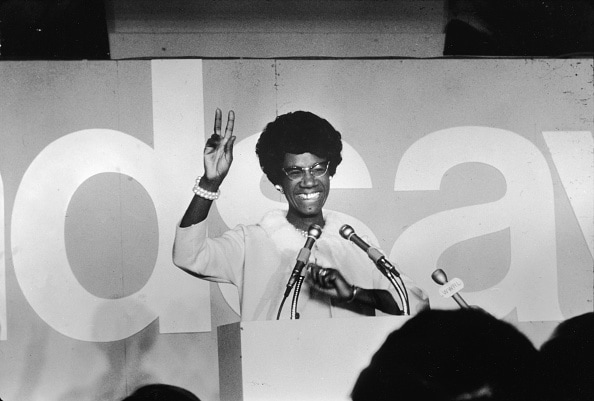
Shirley Chisholm was born in Brooklyn, New York, in 1924. She became the first African American woman in Congress in 1968, and in 1972, she became the first woman of any race to seek a major party’s nomination for president. She didn’t earn the Democratic nomination, but she continued to live an active political life. After serving as a congresswoman for 15 years, Chisholm co-founded the National Political Congress of Black Women. Speaking about how she wanted to be remembered, Chisholm said, “I want to be remembered as a catalyst for change in America.”
5. Maya Angelou
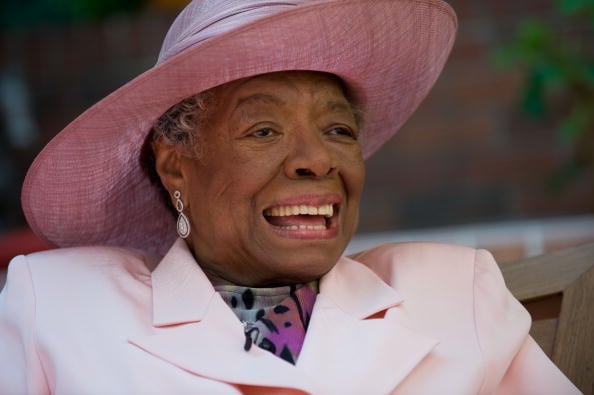
Maya Angelou was a scholar, civil rights activist, dancer, director and world-renowned poet and writer. She was born in 1928 and first made literary history with her book “I Know Why the Caged Bird Sings,” the first nonfiction best-seller by an African-American woman. She was also the first Black woman director in Hollywood, beginning with “Georgia, Georgia” in 1972. Her work spans four decades, earning a National Medal of Arts among countless other awards. She is considered by many to be one of the most renowned and celebrated voices in American literature and her legacy continues to impact people of all ages.
6. Pauli Murray
Pauli Murray was born in 1910 and became a civil rights activist, lawyer, poet, women’s rights activist and the first African American woman to be ordained as an Episcopal priest. Murray was also a co-founder of the National Organization for Women (NOW), an organization dedicated to ensuring women’s rights. In 1946, she served as California’s first African American deputy attorney general. For being an influential figure and change maker in history, Murray was named “Woman of the Year” by the National Council of Negro Women and Mademoiselle magazine. In 1965, Murray became the first African American to earn a doctorate law degree from Yale University.
7. Rosa Parks
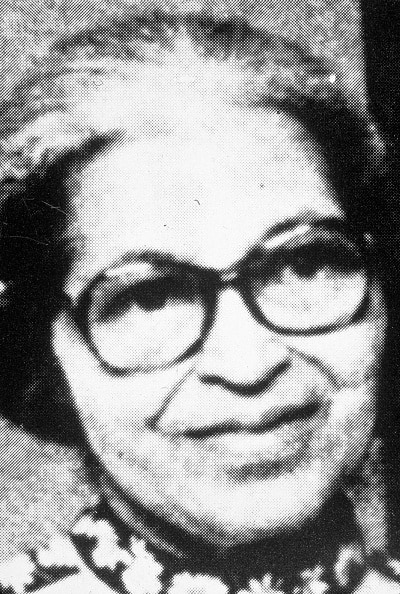
Born in 1913, Rosa Parks was a civil rights activist is one of the most well-known Black women in history. Her decision to not give up her seat on a segregated bus in Alabama led to her arrest on December 1, 1955, and provided the momentum needed for Montgomery Bus Boycott and subsequent desegregation of public transportation in Alabama. The United States Congress has since honored Parks as “the first lady of civil rights” and “the mother of the freedom movement.”
8. Katherine Johnson
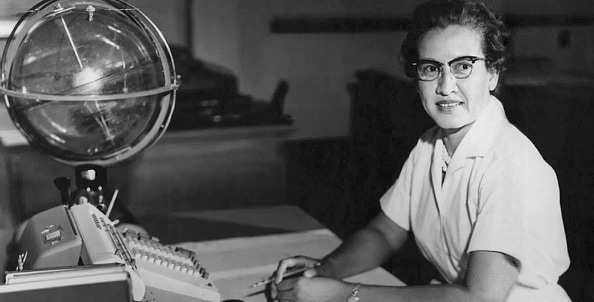
Katherine Johnson was a physicist and mathematician born in 1918. Her groundbreaking calculations guided NASA’s space missions, defying both racial and gender barriers at the time. The 2016 film “Hidden Figures” was based on her life accomplishments, as well as those of her African American colleagues Mary Jackson and Dorothy Vaughan, who were once all used as NASA’s “human computers.” At 97, she was awarded the Presidential Medal of Freedom, America’s highest civilian honor.
9. Marie Maynard Daly
Born in 1921, Marie Maynard Daly was an American biochemist. In 1947, Daly became the first African American woman to receive a doctorate in chemistry in the United States. She was also the first African American to receive a doctorate in chemistry from Columbia University. She is credited for finding a strong correlation between high blood pressure and high cholesterol levels in the blood, which was a groundbreaking discovery at that time.
10. Aretha Franklin
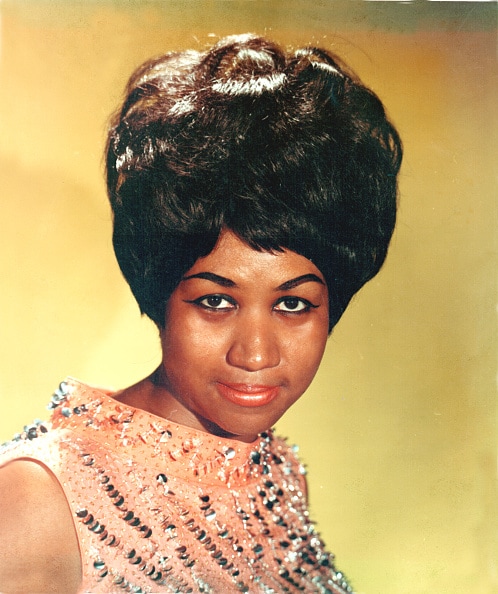
Aretha Franklin is known as “The Queen of Soul” and was the very first female artist to be inducted into the Rock & Roll Hall of Fame in 1987. She also earned the #1 spot on Rolling Stone’s 200 Greatest Singers of All Time. Franklin was born in 1942 and became a central figure during the Civil Rights Movement. Her music inspired Black Americans and people of all backgrounds.
Beyond her many hits over her 40-year career, her song “Respect” was one of her most famous. In her memoir, “Aretha: From These Roots,” Franklin shared that when the song was released in 1967, it was relatable to many but was particularly significant to the thoughts and feelings of Blacks fighting for their citizenship rights. She writes, “It was also one of the battle cries of the civil rights movement.”
11. Ruby Bridges
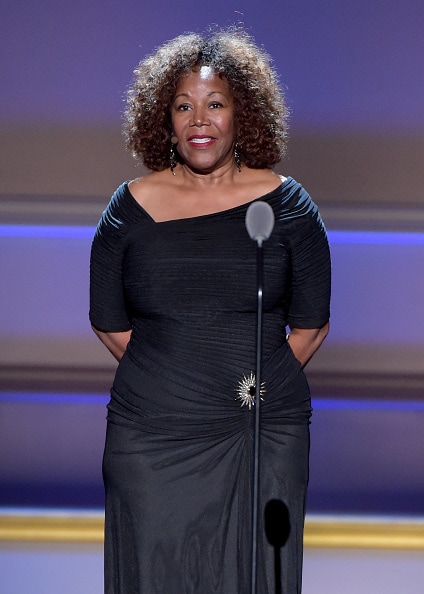
Ruby Bridges is a civil rights activist and author born in 1954. At just 6 years old, she gained national attention for being the first Black child to attend the newly-desegregated William Frantz Elementary School, an all-white school in Louisiana. Bridges had to be escorted to school by the National Guard. In 1999, she established The Ruby Bridges Foundation to promote peaceful academic experiences for children, and in 2009, she published a children’s book about her experiences called “Ruby Bridges Goes To School.” She continues to be recognized among the many famous Black females in history for her extraordinary contributions to the fight for equal rights.
12. Oprah Winfrey
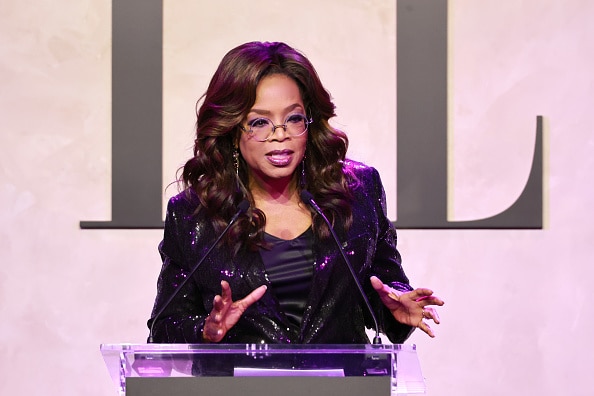
Oprah Winfrey is a journalist, actress, entrepreneur, philanthropist and pioneer in the field of entertainment and media. Born in 1954, she became both the youngest news anchor and the first Black female news anchor at Nashville’s WLAC-TV (now WTVF-TV), and was the first Black American woman to own her own production company. ”The Oprah Winfrey Show’” is credited for being the highest-rated daytime talk show ever. She launched the O, The Oprah Magazine in 2000, a school for girls in South Africa in 2007 and OWN TV network in 2011. In 2018, Winfrey became the first Black woman to win the Golden Globes’ Cecil B. DeMille Award for her contributions to the world of entertainment.
13. Mae Jemison
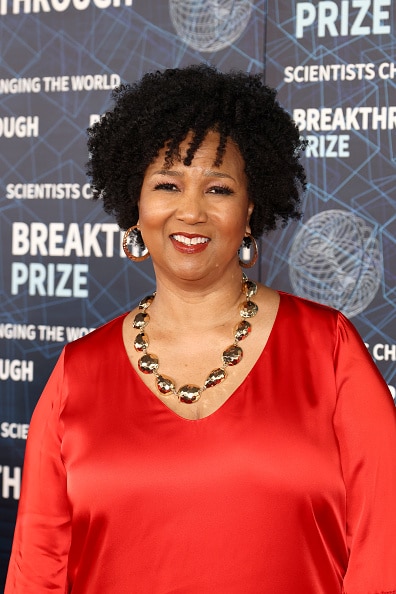
Born in 1956, Mae Jemison is an American engineer, physician and former NASA astronaut. In 1992, she became the first African-American woman to travel into space. She worked as a science mission specialist and conducted experiments on the effects of space travel for the STS-47, a Spacelab Life Sciences mission. Jemison was also inducted into the National Women’s Hall of Fame, the National Medical Association Hall of Fame and Texas Science Hall of Fame. She has also committed herself to leading the 100 Year Starship project to ensure space travel to other stars continues.
14. Michelle Obama
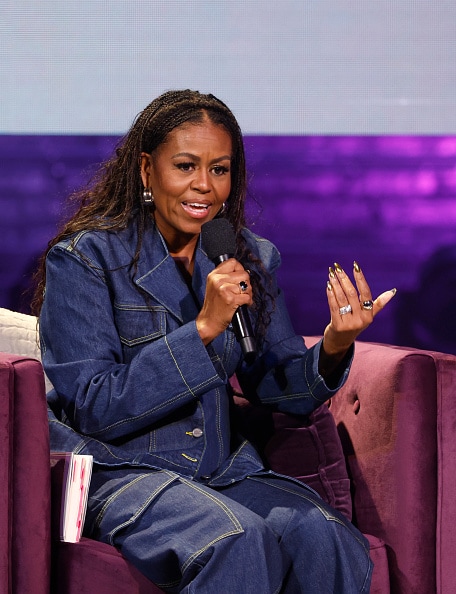
Michelle Obama is a lawyer and author who was born in 1964. In 2009, she became the first African American woman to become the First Lady of the United States. During her role as First Lady, she created a national garden and a vital food and nutrition program for children called, “Let’s Move!”. Since leaving the White House, Obama has authored two inspirational nonfiction books, “Becoming” and “The Light We Carry.”
“Knowledge of the past is what enables us to mark our forward progress. If we’re going to continue to move forward as a nation, we can’t allow concern about discomfort to displace knowledge, truth or history.”
— Ketanji Brown Jackson, U.S. Supreme Court judge
15. Kamala Harris
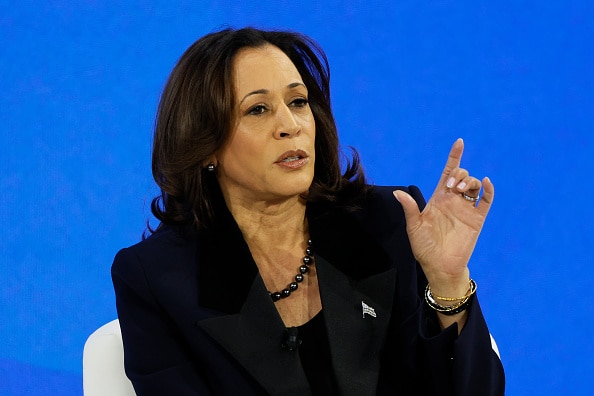
Also born in 1964, Kamala Harris became the first Black — and female — vice president of the United States in 2020, and then made history as the first Black and South Asian American democratic nominee in the 2024 presidential election. Before that she spent years in politics — first, as a District Attorney for San Francisco and later as California’s Attorney General and a state Senator. As a graduate from Howard University, a Historically Black University (HBU), and member of Alpha Kappa Alpha (AKA), the first intercollegiate historically African American sorority, Harris has been and continues to be an inspiration to many Black young women.
16. Ketanji Brown Jackson
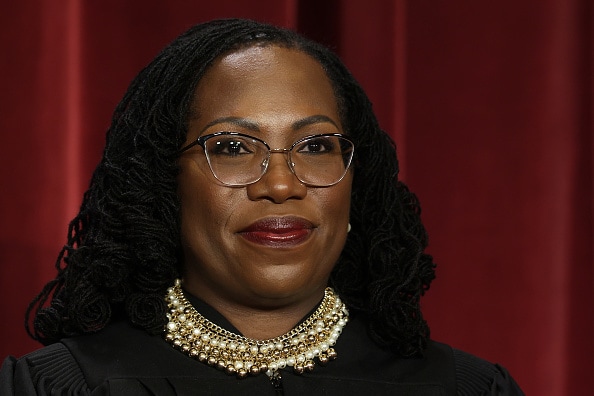
Judge Ketanji Brown Jackson became the first African American woman to be elected to the Supreme Court in 2021. She was born the nation’s capital in 1970 only to make history in the same place 55 years after Thurgood Marshall became the first Black male to join the Supreme Court.
In a speech delivered in Alabama on September 15, 2023, Jackson said, “Knowledge of the past is what enables us to mark our forward progress. If we’re going to continue to move forward as a nation, we can’t allow concern about discomfort to displace knowledge, truth or history.”
By illuminating the achievements of these 16 Black women who defied the odds, shattered barriers and cemented their places in history, we provide a roadmap for girls to visualize their own limitless potential and the countless possibilities that lie ahead.
